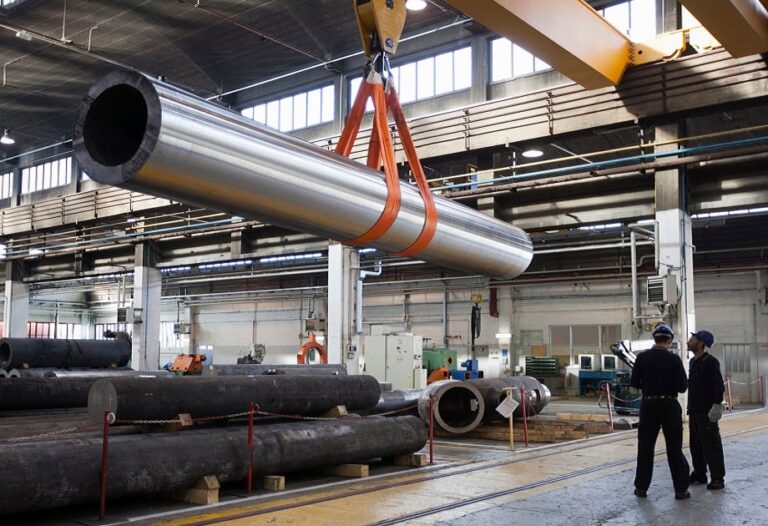Discuss how working with a reliable steel supplier can help meet these standards.
Knowing the difference between the best steel suppliers in your area and the worst can mean the difference between resounding long-term success and constant issues, whether you’re a one-time customer or a business with a consistent need for steel.
Fortunately, it’s not difficult to sort the good from the bad when you’re looking at steel suppliers, as the best can be expected to meet a certain easily-checked set of criteria. Here are 10 things to look for in a superior steel supply company:
1 Reliable logistics.
Nothing matters more from a supplier, of steel or any other material or good, than the reliability of logistics you can expect in working with them. There should never be any question of a steel supplier obtaining what you need in a timely manner, never a question of how your steel is stored, never a question of how they’ll transport the steel to you. If your steel supplier can’t keep their logistical house in good order, you can be certain they won’t prove any better on any other aspect of their business. Watch the logistics!
2 Extensive and diverse inventory.
Good steel suppliers maintain an inventory which can meet just about any need. If you face a supplier with a limited supply of options trying to convince you to accept ‘good enough’ solutions, you might want to move on. You want the perfect fit for your needs, not ‘what the supplier happens to keep around’, so expect more from inventory selections. If they don’t have it in storage, sound logistics should make obtaining your needs easy—just don’t settle for subpar solutions, no matter how convincing a sales pitch you might hear.
3 Fast response to inquiries.
A superior steel suppliers will get back in touch with you in a timely manner—you won’t be left hanging indefinitely, forced to make desperate follow-up calls as deadlines loom closer. You could argue that a firm that’s too eager for your business might be a red flag, but ultimately no supplier with sound logistics and experienced employees should be dragging their heels on responding to inquiries. If they’re not interested enough in your business to get back to you, move on to another steel supplier who takes new customers seriously—even if they do come around eventually, do you want to work with a company too loaded down with high priority customers to respond to you?
4 Knowledgeable sales representatives.
When you reach out to a superior steel supplier, you should expect to be talking with someone who knows steel the same way you know your business. If you can stump the representative a dozen times in as many minutes of discussion, you should be wary of the supplier—sure, you might have an unusual set of needs, or the rep might be a newbie, but it’s not a good sign nonetheless. After all, knowledgeable personnel will help set you up with the perfect materials; less knowledgeable ones might ‘assist’ you right into a major fiasco.
5 Thorough customer support.
Problems aren’t completely inevitable, but they’re highly probable over a long enough time frame—and you want a supplier that can work with you to resolve those problems quickly and easily. Whether the issue arises in logistics, material quality, payment issues, or any other area, you want a steel supplier with the customer support infrastructure necessary to get you back to work with minimal downtime.
6 Quick turnaround.
If you can’t move from inquiry to steel on your doorstep in a very short timeframe, you’re not dealing with a superior steel supply company. Fast turnaround is key for any supply business, so it should be a big red flag if your supplier doesn’t meet this standard, even if you don’t strictly need fast turnaround for your own business. It’s one of the first things a lot of businesses will look at in analyzing a supply company, so a failure in this realm suggests major issues across the board—so check the turnaround, whether you need a fast one or not.
7 Rigorous quality control.
Superior steel suppliers don’t cause major headaches because they let through a bad batch of steel, or forgot a test, or sent you inappropriately-sized materials. That sort of amateurish quality control simply isn’t acceptable, no matter how good a deal you might get—after all, how much money do you stand to lose when something collapses, warps, or misaligns down the line? How much money will you lose on the repairs, the downtime, legal liability, and who knows what other hidden costs? Poor quality control is never acceptable in a steel supplier—there are industries and materials where you can sacrifice QC to get costs down, but steel isn’t one of them.
8 Experience.
It might be unfair to new industry entrants, but you generally don’t want to work with a fresh-faced steel supplier. A new company is fine, so long as it’s helmed by industry veterans, but any business dealing with logistics demands a certain familiarity with the people, laws, shipping lanes, etc., involved. That’s the kind of knowledge that comes with experience—it’s not written down in an easily digested textbook or guide. So if you want to work with a superior steel supplier, make sure you’re working with an experienced one.
9 Connections.
This is closely related to experience, but not all experienced suppliers have the connections they need to thrive. When you have a special need that your supplier can’t quite fulfill, the best suppliers have industry contacts they can turn to which will help you get what you need. Having the right connections to make things happen for customers can be considered what separates a good steel supplier from a truly superior one. See who your supplier works with, and you’ll understand what they can offer you in a pinch.





